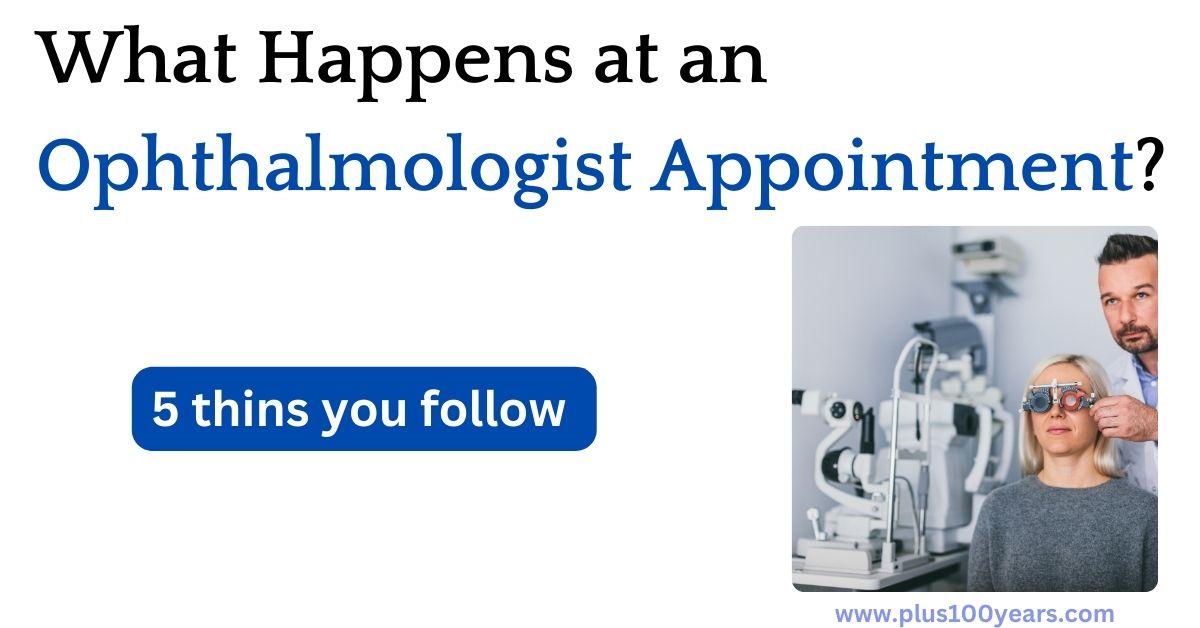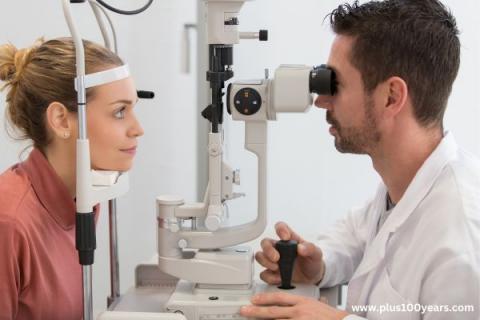
Ophthalmologists are medical doctors who specialize in eye care. Their roles range from prescribing glasses to performing complex eye surgeries. See some of the most influential ophthalmologists in Singapore
So, you might need to see an ophthalmologist if you're having trouble with your vision.
For example, you may be referred to an ophthalmologist for blurry vision or seeing halos around lights. They can also help with eye conditions like glaucoma, macular degeneration, or diabetic retinopathy.
What Happens at Ophthalmologist Appointment?
You do not see your ophthalmologist every day so when referred to one it is natural to wonder, what happens at an ophthalmologist appointment?
Well, there are a lot of things that happen at an ophthalmologist appointment so it isn't easy to cover everything in one list.
Here's a quick summary of what you can expect, nonetheless;
1. Meet and Greet
When you step into the ophthalmologist's office, you should expect a warm welcome from the staff. They will guide you through the paperwork and ask about your medical history.
This initial interaction sets the tone for your visit. It is what ensures that all your concerns are addressed.
Your ophthalmologist will also want to understand your medical background to be able to provide the best care possible. To help with this, they ask a lot about any eye problems you've had in the past.
They will also ask about your family's eye health history and any medications you're currently taking. This thorough review is key for tailoring their approach to your specific needs. So, be sure to answer each question to the best of your ability.
2. Comprehensive Eye Examination
After the paperwork, next up is the eye examination. For your eye exam, your ophthalmologist will perform a series of tests to evaluate your vision and overall eye health.
This comprehensive examination typically includes tests to measure your visual acuity, check for refractive errors like nearsightedness or farsightedness, assess your eye pressure for signs of glaucoma, and examine the structures of your eye, such as the retina and optic nerve.
These tests allow your ophthalmologist to detect any abnormalities or diseases early on when they're most treatable.

3. Dilation of Pupils
This is a procedure that is done to get a better view of the inner structures of your eye.
To dilate your pupil, the ophthalmologist may use special eye drops.
This process temporarily enlarges your pupils to allow for more light to enter the eye and give the doctor a clearer view of the retina, optic nerve, and other important structures.
Please note that pupil dilation can cause temporary blurriness and sensitivity to light.
However, it is a crucial step in the examination process. It allows the ophthalmologist to thoroughly evaluate the health of your eyes and identify any issues that may require further treatment or monitoring.
If you have any concerns, be sure to share them with your ophthalmologist. As a general rule of thumb, a good ophthalmologist will not deflect your questions but answer each of them exhaustively.
4. Discussion of Findings
Following the examination, your ophthalmologist will discuss their findings with you. In particular, they will explain any abnormalities or conditions they've identified.
Most importantly, they will answer any questions you may have in regard to the findings. This discussion is an important opportunity for you to gain a better understanding of your eye health and any potential treatments or interventions that may be necessary.
So be sure to bring forward any concerns that may be bothering you. Your ophthalmologist will work with you to develop a personalized plan of action to address your specific needs and concerns.
5. Treatment Recommendations
Based on the results of your examination and discussion, your ophthalmologist may recommend a course of treatment. This is varied and informed by your examination results.
It could involve prescription eyeglasses or contact lenses to correct vision problems. You may also be prescribed medication to manage eye conditions like glaucoma or dry eye syndrome.
In extreme cases, surgery may also be recommended for more serious issues. A good ophthalmologist will explain the reasoning behind their recommendations.
Most importantly, they will discuss the potential benefits and risks of each option. They'll work closely with you to determine the best course of action for your situation. In this process, they will take into account your preferences and lifestyle to ensure the best treatment outcomes.
6. Education and Counseling
Ophthalmologists do not provide only treatment recommendations. They also offer education and counseling to help you maintain optimal eye health.
So, you can expect them to discuss with you the best strategies for preventing eye problems. For example, they may suggest wearing protective eyewear, practicing good hygiene habits, and scheduling regular eye exams.
What's more, they may also provide tailored guidance on lifestyle factors that can impact your eye health. For example, they may guide on diet, exercise, and smoking cessation. This process is key to ensuring that you take an active role in caring for your vision for years to come.
7. Follow-Up Care
Your visit to the ophthalmologist doesn't end when you walk out of the gates of the clinic. After your appointment, your ophthalmologist may recommend follow-up visits.
These visits are for monitoring your progress or adjusting your treatment plan as needed. They are an essential part of maintaining good eye health and addressing any ongoing concerns so do not take them casually or skip any of them.
Your ophthalmologist will work with you to schedule follow-up visits at appropriate intervals. This will depend on your individual needs and the nature of your condition.
In Closing
Visiting an ophthalmologist is a comprehensive experience. It covers everything from thorough examinations to personalized treatment recommendations and ongoing support for maintaining optimal eye health.
For the best treatment experience, try to understand what to expect at your appointment even as you still prepare for the visit.
This way, it is easier to get involved in your eye care and take proactive steps to protect your vision for years to come.
Do you need to see an ophthalmologist in Singapore? We accommodate both emergency and routine visits. All our practitioners are also board-certified so you can rest assured of top quality services. To schedule an appointment, call or visit us at;
Dr. Chelvin Sng
Adjunct Associate Professor
Senior Consultant Ophthalmologist
38 Irrawaddy Road Mt Elizabeth Novena Specialist Centre, #06-25,
Singapore 329563
+65 6334 2282

Add new comment